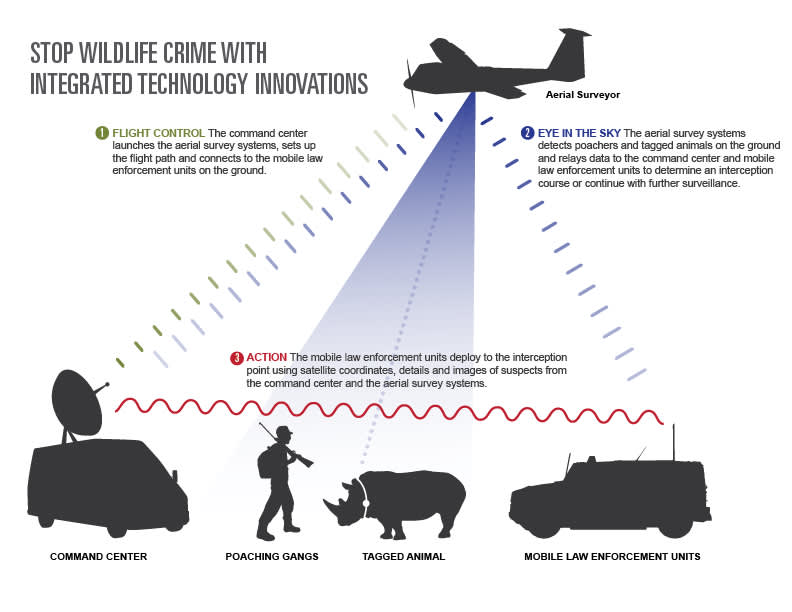Google Joins Fight Against Wildlife Poaching in Africa
OutdoorHub Reporters 12.10.12

 On December 4, the World Wildlife Fund (WWF) received a major grant from tech giant Google to build and deploy unmanned aerial vehicles (UAVs) to patrol wild lands and stop prevent illegal poaching activity that is decimating wild rhinoceros, elephant and tiger populations.
On December 4, the World Wildlife Fund (WWF) received a major grant from tech giant Google to build and deploy unmanned aerial vehicles (UAVs) to patrol wild lands and stop prevent illegal poaching activity that is decimating wild rhinoceros, elephant and tiger populations.
The $5 million Global Impact Award grant will help build the UAVs, also known as drones, that will use integrated specialized sensors, wildlife tagging technology and remote aerial survey systems. The money and drones will “be coupled with cost-effective ranger patrolling guided by analytical software, to increase the detection and deterrence of poaching,” according to a WWF press release.
“With this grant, we can create an umbrella of technology to protect wildlife from global crime syndicates,” said Carter Roberts, President and CEO of World Wildlife Fund. “It’s all about new surveillance tools and patrol systems to stem what has become an explosion in poaching. Otherwise, we could see the end of species like rhinos and elephants in the wild.”
The drones will be controlled via a tablet computer and track animals with smart radio tags. The software will also be able to map where poachers strike. The organization is not revealing how many drones will be made. They are launched by hand and can fly approximately 18 miles.
 Similar UAVs had been developed by the WWF earlier this year to monitor tiger poaching activities in Nepal. Park rangers are being trained to operate the UAVs, which give anti-poaching authorities an additional tool in the sky to monitor activity without endangering themselves. The GPS-enabled FPV Raptor model planes film the ground with a video or still camera and cost about $2,500 per unit.
Similar UAVs had been developed by the WWF earlier this year to monitor tiger poaching activities in Nepal. Park rangers are being trained to operate the UAVs, which give anti-poaching authorities an additional tool in the sky to monitor activity without endangering themselves. The GPS-enabled FPV Raptor model planes film the ground with a video or still camera and cost about $2,500 per unit.
Poaching has been a particular problem for rhino populations this year. There have been as many as 588 confirmed rhino killings in 2012 alone. On November 21, the AFP (Associated French Press), said the total number of rhinos killed this year was 570 after a bloody day on a South African farm when 7 rhinos were killed in one weekend.
The cash the WWF received from Google was part of a larger Global Impact Award program in which$23 million was awarded to seven different organizations.

